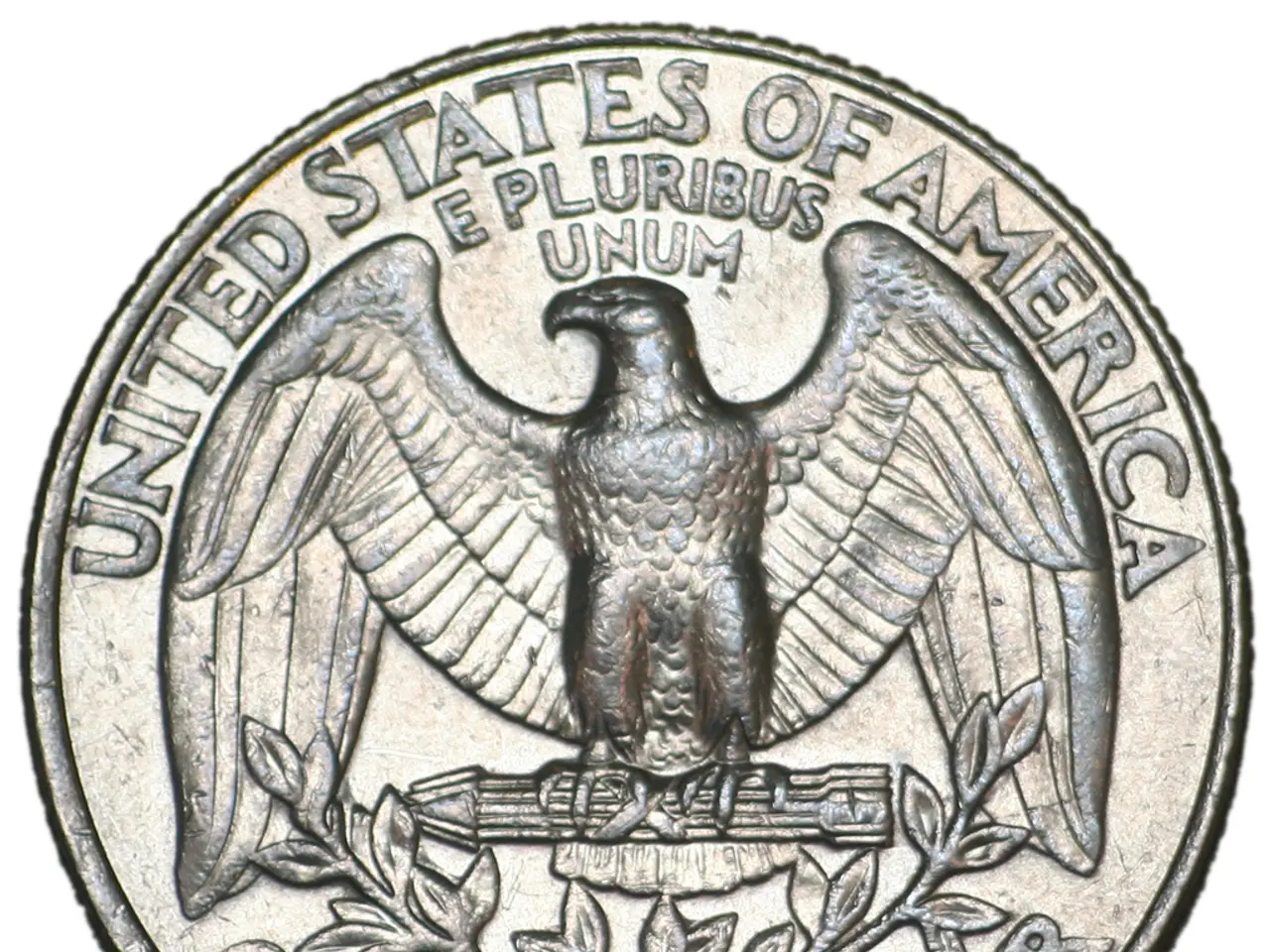Finance app Robinhood introduces Ethereum (ETH) and Solana (SOL) staking for U.S. users, potentially pushing regulatory limits set by the Securities and Exchange Commission (SEC).
In a move that signals renewed interest in crypto yield offerings, Robinhood has recently launched Ethereum (ETH) and Solana (SOL) staking for U.S. users, marking a strategic expansion of its cryptocurrency offerings [1][2][4]. The service allows users to earn rewards by participating in network validation processes, a move aimed at enhancing platform utility and diversifying revenue streams.
However, the evolution of regulatory boundaries in the U.S. has created a complex landscape for staking services. The U.S. Securities and Exchange Commission (SEC) has been actively scrutinizing staking services provided by crypto exchanges, with legal actions filed against Coinbase and Kraken over alleged securities law violations related to staking programs [1].
In May 2024, the SEC's Division of Corporation Finance issued a statement clarifying its stance on staking under U.S. federal securities law. Applying the Howey test, the SEC concluded that "Protocol Staking Activities" typically do not meet the "efforts of others" prong, a key element for defining an investment contract as a security [3]. The SEC reasoned that node operators' or validators' activities are administrative or ministerial rather than entrepreneurial or managerial, with staking rewards representing compensation for validation services, not profits from a common enterprise's success.
While Robinhood's staking service comes amid heightened regulatory scrutiny, the SEC has not yet directly targeted the firm's staking offerings. Given ongoing SEC lawsuits against other exchanges, Robinhood may face close monitoring to ensure compliance with securities laws, though the SEC's recent stance suggests a nuanced approach that distinguishes typical staking from securities offerings [1][2][3].
The regulatory approach may evolve depending on how the SEC interprets staking services' structure and whether new staking models emerge that implicate the Howey test differently. Crypto analysts and industry apps have reacted to the development with both interest and concern, with some noting that Robinhood's move could invite SEC scrutiny given the regulatory uncertainty [1].
The fragmented approach to staking, characterised by region-specific eligibility and state-level discrepancies, could dampen returns and complicate staking rewards. Smaller traders may begin exploring offshore or decentralized alternatives due to pressures and increased compliance costs. Crypto investors will be watching to see if Robinhood can shape the future of staking access for American users.
Robinhood's ongoing compliance and adaptations will be crucial in navigating potential SEC responses amid this evolving regulatory framework [1][3]. Without clear rules, staking might be reclassified as securities again, leading to potential service disruptions. The future of staking in the U.S. remains uncertain, but Robinhood's strategic move has undoubtedly contributed to the ongoing conversation about the role of staking in the mainstream crypto market.
- In light of the SEC's recent statement on staking under U.S. federal securities law, Robinhood may find investments in Ethereum (ETH) staking a strategic opportunity, given that the SEC considers staking rewards as compensation for validation services rather than profits from a common enterprise's success.
- As the regulatory landscape for staking services continues to evolve, investors may consider Robinhood's finance offerings, such as Ethereum (ETH) staking, as a potential way to participate in network validation processes and earn rewards, given the ongoing regulatory uncertainty and potential for service disruptions.




